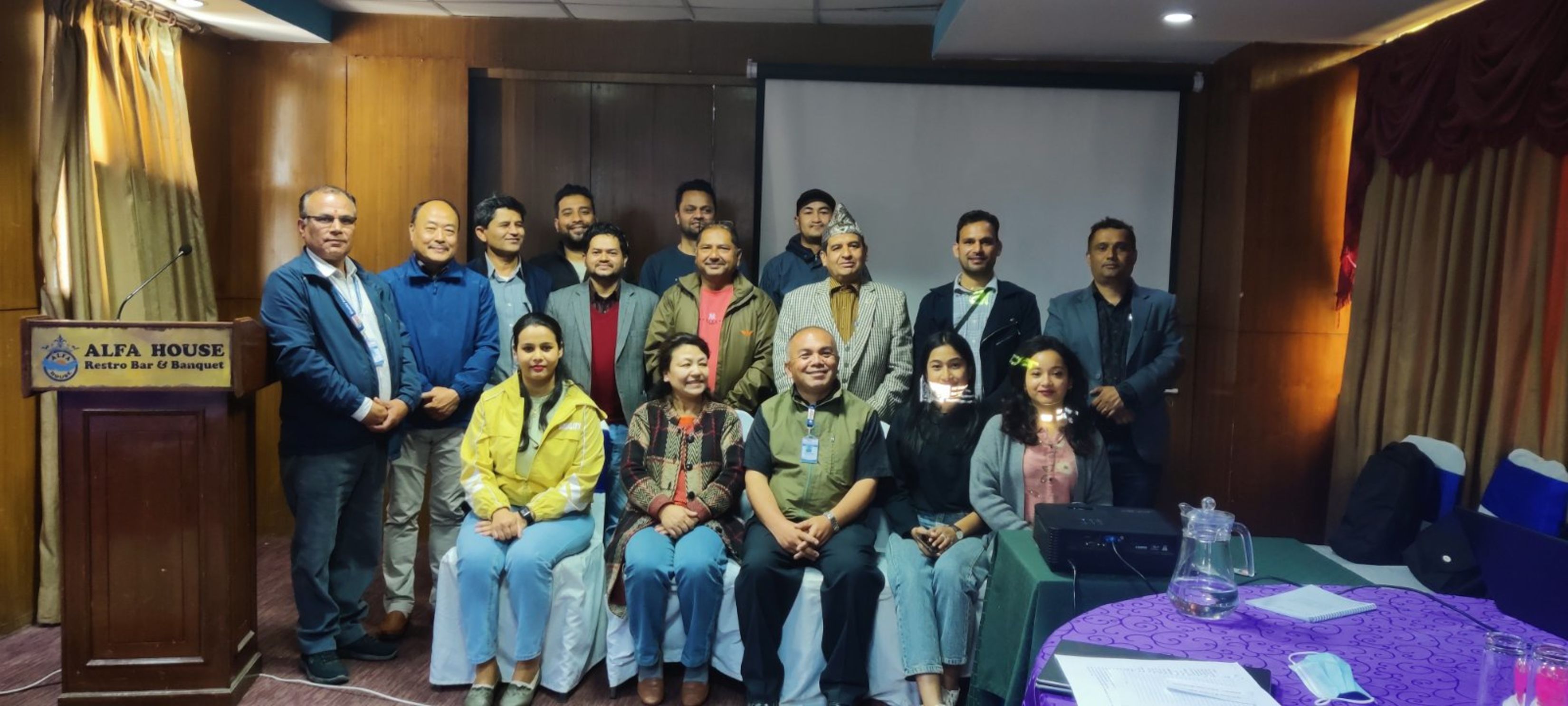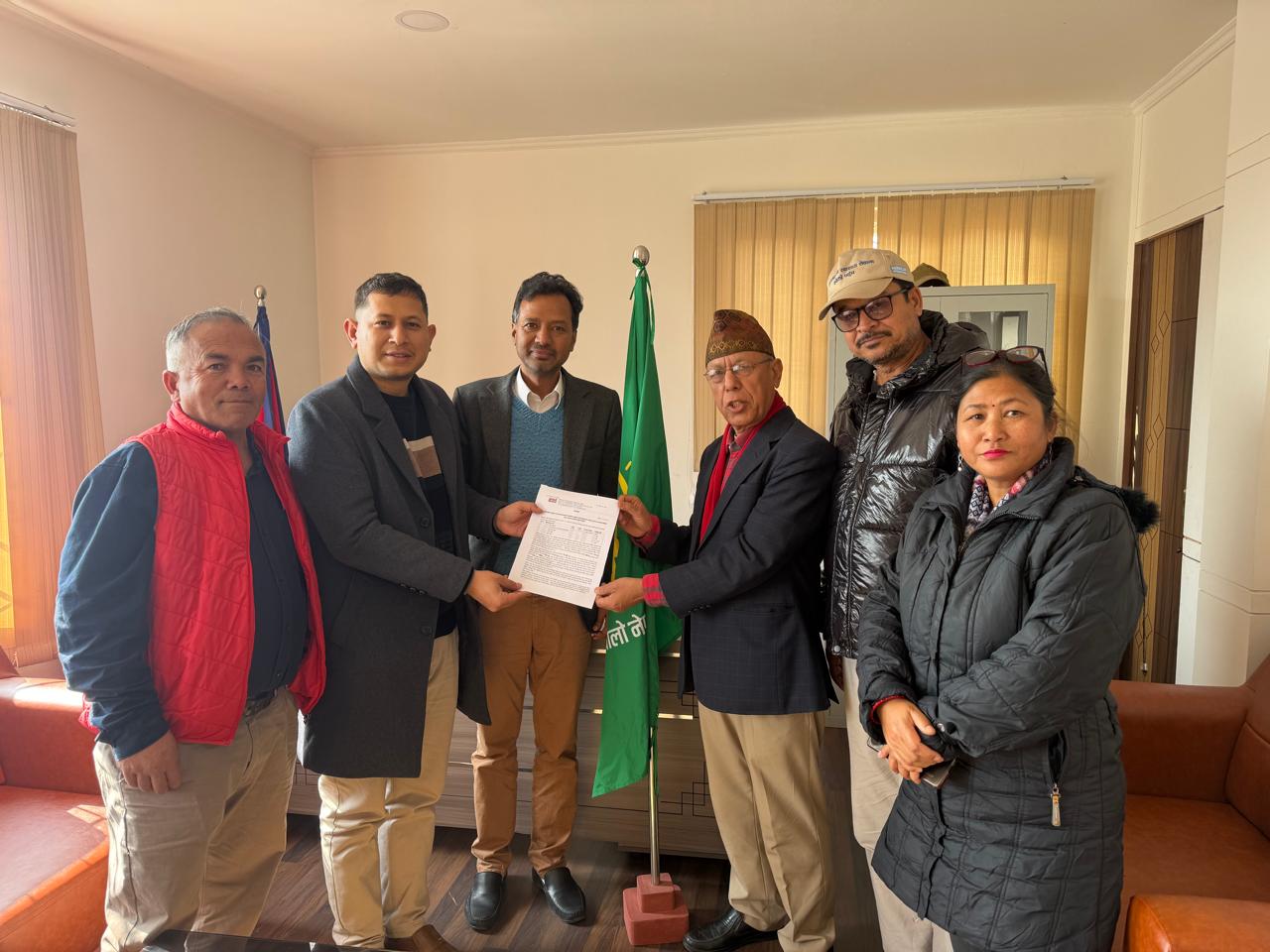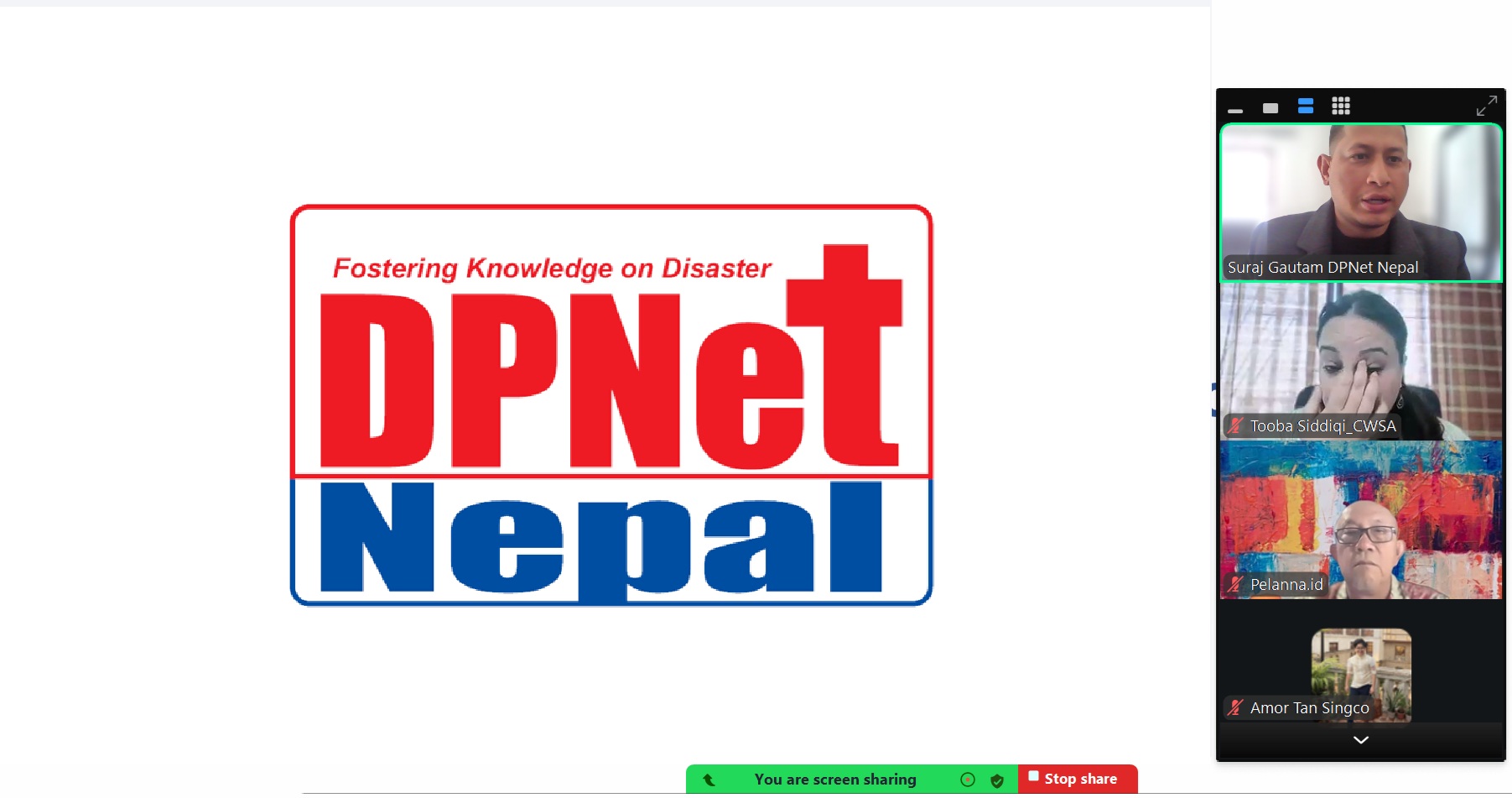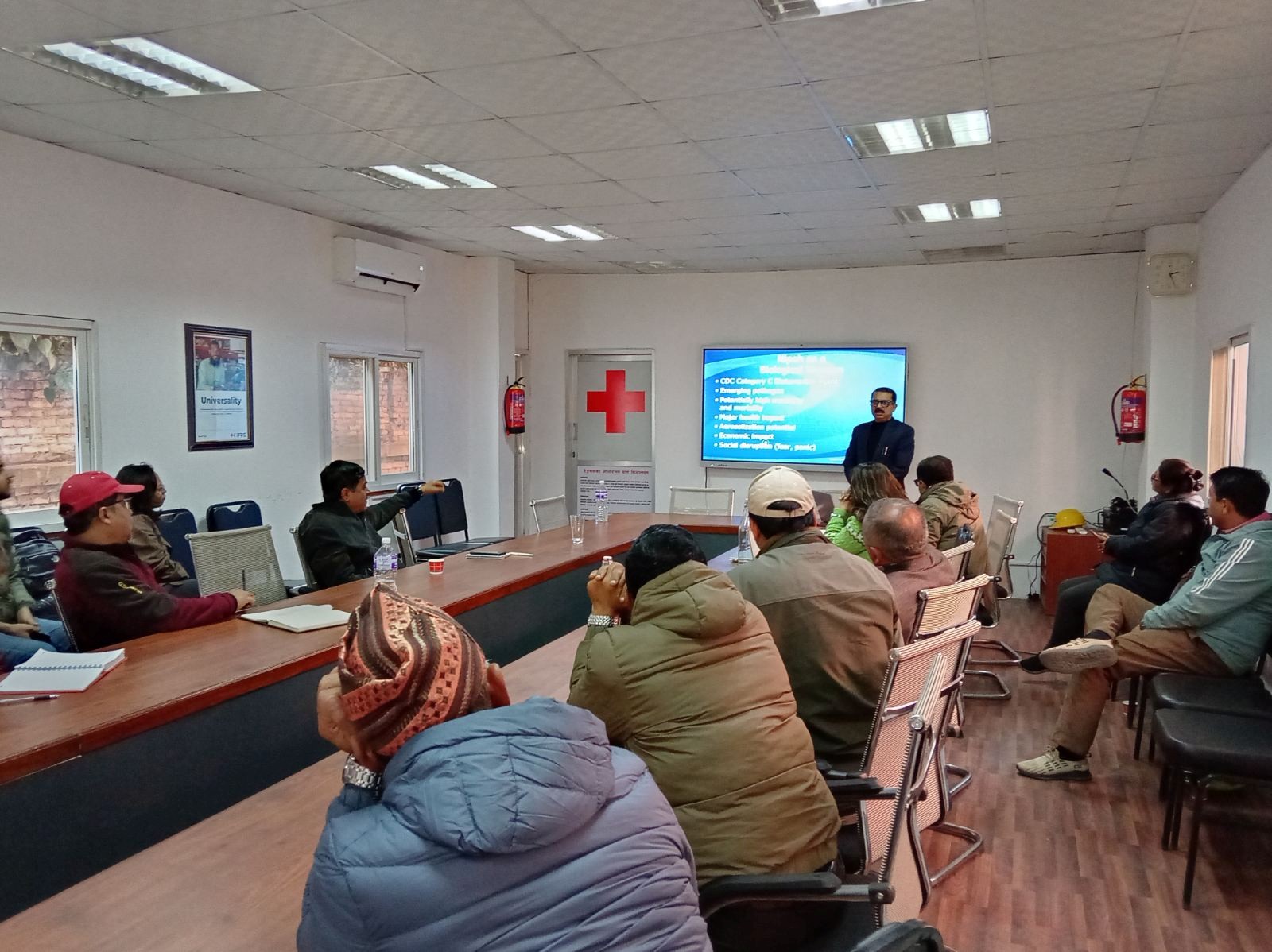The Subjective Committee Discussion Program (Academia and Research Based Organization)
Mar 13, 2022

The Subjective Committee Discussion Program (Academia and Research Based Organization) under the National Platform for Disaster Risk Reduction was organized by DPNet in collaboration with National Disaster Risk Reduction and Management Authority (NDRRMA) in Alpha House, Baneshwor on 10th March 2022. Dr. Basant Raj Adhikari, Assistant Professor, Department of Civil Engineering, Institute of Engineering, Tribhuvan University chaired and mediated the program. Ms. Santona Devkota KC, Program Coordinator of DPNet welcomed everyone and highlighted the objective of the program.
Major Highlights
- Dr. Dijan Bhattarai, Under Secretary of NDRRMA shared the status of NDRRMA, its challenges and way forward. He explained about the NPDRR Guideline and its implementation at all levels. He further clarified about the working area of NDRRMA and shared the importance of coordination and collaboration with different stakeholders. He shared how Academia/ Research Based Organizations can strengthen the country's DRRM sector by research and investigation on policies, developing an expert rooster on DRR and working guidelines for NPDRR. It is important to make a roster of experts and work accordingly. He shared about the Nepal Disaster Resilience Framework 2030 draft with 8 priority areas such as understanding disaster and climate change risk, strengthening disaster risk governance at Federal, Provincial and Local Levels, increased public investment in DRR resilience, enhancing disaster preparedness for effective response, research- training and capacity building, multi- hazard early warning system and disaster risk financing. NDRRMA should assist the authorities in building a system of assigning individuals as disaster risk reduction experts.
- Dr. Raju Thapa, Vice Chairperson of the DPNet, highlighted the importance of exhibiting a position paper from Nepal in the Global Platform for Disaster Risk Reduction (GPDRR) 2022. He requested the academic group to develop innovative research that takes into consideration indigenous knowledge and evidence based science to mitigate the loss of life and property at the community level.
Major Discussions
- There was research conducted on disaster communications before and after the Melamchi Flood of 2021 it was found that there were no clear channels of communication defined for post disaster between the different organizations.
- The government of Nepal should test and verify the research that has been done by the academicians.
- When sensitizing people at ground level there needs to be properly defined climate change indicators.
- Before the construction of the tunnels in Melamchi research should have been conducted by the researchers of the nation in the upper catchment area.
- There should be clear coordination and collaboration between the researchers and the Government on the kind of research that is necessary for the nation.
- The Government of Nepal should entrust the universities and academicians to conduct research on important subjects.
- Funds should be allocated for long term research.
- The traditional teaching/learning methods should be modified to keep up with international practices.
- Research should be conducted on cascading hazards in Nepal for the position paper in GPDRR 2022.
Mr. Ram Prasad Bhattarai, gave vote of thanks to all participants and closed the program.











